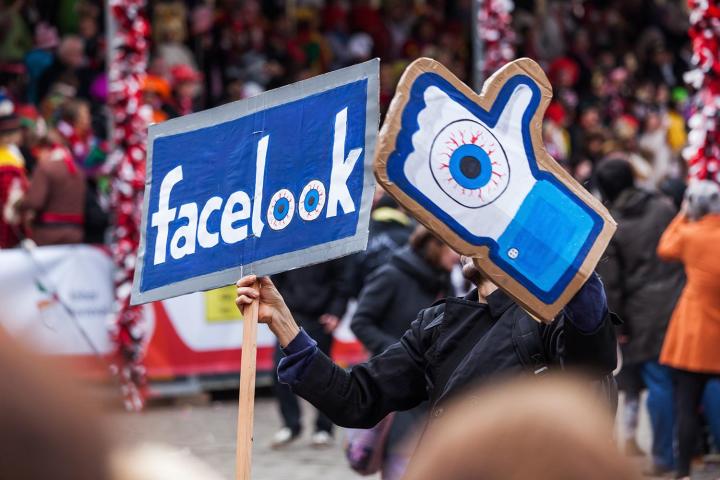
That pain you’re feeling right now? That’s “backlash whiplash” from your reaction to Facebook’s new Shazam-like feature, which turns on your phone microphone so it can identify songs from the radio and TV. Somewhere in the fine print, there’s a bit preemptively assuring us that no sound is stored — the company’s intent on archiving data, however, is a different case altogether.
Don’t worry, that pain is perfectly natural, and will almost certainly dissipate the next time someone posts a kitten photo in your timeline. See? Now doesn’t that feel better?
What’s left to say about Facebook’s seeming disregard for user privacy? Not enough to fill out a 1,000 word op-ed, certainly. Let’s just nip this one in the bud and explain how things are going to go here: Someone reads the fine print, blog posts are written, outrage spreads, Facebook and the company will adjust things accordingly.
It’s not a mistake; it’s part of the process now. At some point, user outrage simply became part of testing the waters with new features. See, for all of the impact services like Facebook have had on our daily lives — both good and bad — the simple fact is that, like the rest of the internet,
There’s nothing advertisers like more than specificity. Above all, they want to make sure they’re targeting the right people with the money they spend, and for that, it doesn’t get much better than Facebook, which knows even more about you with every new feature. The company’s new audio-recognition software opens a whole new vertical of useful information. Forgetting for a moment deeper conspiracies regarding conversation snooping and the like via your phone’s mic, just the simple, real-time collection and logging of the music you’re listening to and the shows you’re watching brings exactly the sort of information advertisers are looking to sell against.
At some point in the process, outrage simply became part of testing the waters.
Forget blog posts, we could fill several encyclopedia volumes with social network actions that have caused such — in many cases justified — online outrage. Here’s a quick example: Remember “Quit Facebook Day?” It happened four years ago almost to the day. A group of users concerned about privacy banded together, creating a day devoted to deleting accounts. Some estimates put the number of potential deletions at 2 percent of all U.S.
By the end of the day, around 33,000 people quit the site. How many people is that? Think about it this way: the average attendance for a Houston Astros home game in 2014 is 21,332. (The Astros, for the record, are currently 13.5 games out of first in the AL West, thanks to their 17-31 record. Right now the Astros are the Friendster of major league baseball.)
Instances like this have become routine, and few, if any, have had enough of a long-lasting effect so as to cause a significant portion of the site’s user-base to pack up their things and move on.
Here’s where we stand as a culture: The majority of us have decided that the benefits of services like Facebook outweigh the privacy concerns. As I write this, I have two (TWO!) browser tabs open on
None of this means that outrage doesn’t have its place. And while it can be tiring, it’s important to do our part to keep these companies in check in as much as possible. Yes, even small steps forward, like forcing a company to change its terms of service, can count as victories. If there’s a key to remaining vigilant without succumbing to backlash whiplash, I think it’s this: Recognize the scale of a problem. It didn’t take long for the Internet to move to a model of always-on hyperbole, something no doubt sped along by sites like Facebook.
If we give the same weight of response to a slight Facebook UI redesign as we do to a legitimate invasion of privacy, we burn out quickly. Before passing those links along, take a moment to read them, contextualize them and breathe. Oh, and don’t forget to like this post on
(Image © Christian Mueller via Shutterstock.com)
Editors' Recommendations
- Xbox PC Game Pass has a big problem — and it isn’t the name
- Even with 32 GPU cores, the M1 Max MacBook Pro still isn’t a gaming destination
- HDR is a mess, and porn isn’t going to save us this time
- You can now download Facebook’s Messenger app to your desktop
- Google is shutting down your Chromebook apps, but here’s why you shouldn’t worry


